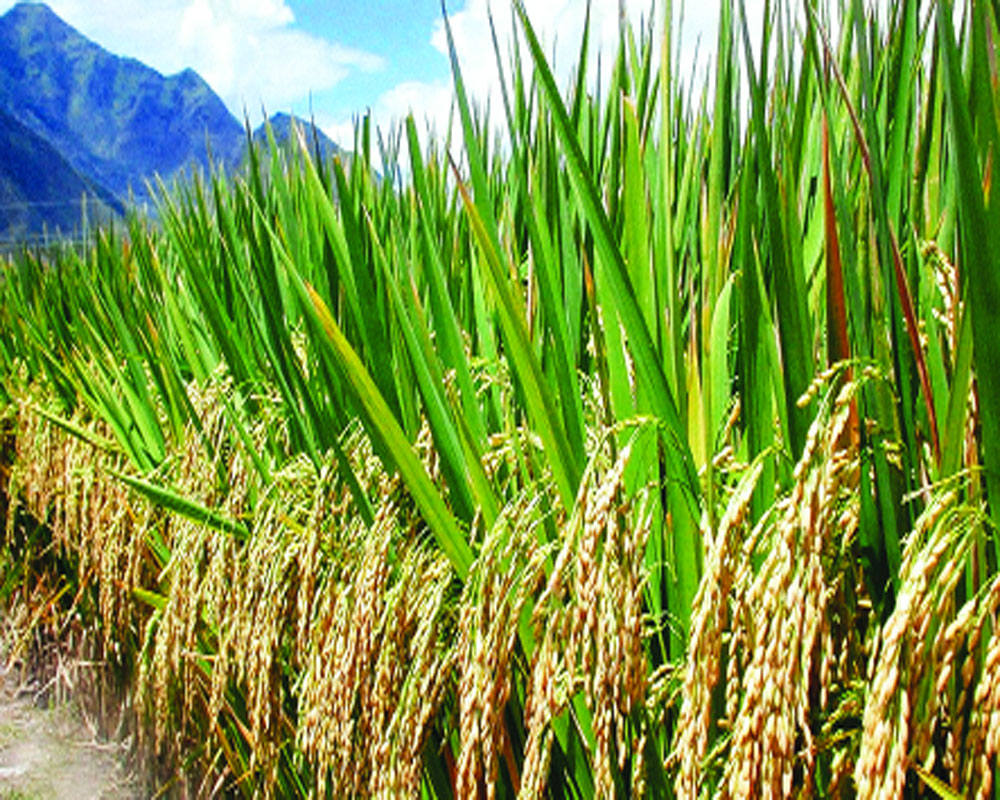Food production is critical to keep the wheels of the economy turning. We must not allow climate change to hijack our food security
The rapidly worsening condition of the environment is increasingly creating harsh terms for agriculture in India. The sudden floods, such as those experienced by Telangana last week, and unexpected droughts in many areas coupled with a sheer drop in yield per acre are creating financial havoc for the farming community. Moreover, the recently-passed farm Acts have added to the woes of the already burdened growers. Farmers have become unsure of the future, especially regarding the produce and how the MSP (Minimum Support Price) will be impacted due to the entry of big players and whether the Government will continue to buy farm produce at the same price and quantity as before.
With the only means of voicing their concern being protests, the growers have of late tried to convey their feelings and insecurities regarding the Acts through demonstrations in Delhi, Punjab and other parts of the country. Sadly, their outcry has fallen on deaf ears till now. This muted response from the Government has now increased the farming community’s distress. This angst is expected to reach a crescendo in November when the agricultural community is planning to scale up the protests.
Already, the country’s farm sector is besieged by chronic problems such as mounting debt, poor quality seeds and overuse of pesticides besides the vagaries of the environment. However, being a hardy community and the spine of the Indian economy, the farmers have always fought their way through hurdles. The challenges thrown up by the environment in the form of rising temperatures and erratic rainfall, too, need to be met and responded to by the growers effectively and innovatively. The Government must enable farmers to deal with this instead of giving the impression of being callous about their welfare.
As politics rages over the Acts, worrisome developments are escaping the attention of policy-makers and the authorities concerned. A decade-wise observation of rainfall patterns shows that from October to December, rainfall has been at a record low of 100.06 mm for the 2010-2019 period as compared to 106.29 mm during the similar period in 2000-2010. The average post-monsoon rainfall has fallen below 110 mm. Coupled with this, droughts are getting more frequent and prolonged each year. Mid-2018 saw heatwaves fanning across India followed by scanty rainfall in the same year and in 2019 as well. These circumstances exacerbated the already daunting challenges for farmers, who had to bend over backwards to take the yield out of the parched land.
The adverse impact of the worsening environment on agriculture cannot be reversed overnight but the lot of the farmers cannot be allowed to deteriorate further as well. Therefore, there is an urgent need to innovate and evolve agricultural methods and initiatives that are capable of rescuing them from the grip of climate change. There is also a need to provide a sustainable solution that can be amplified across the sector on a large scale. An example of how this turnaround can be affected is available in a study published in the journal Earth System Science.
The research focussed on rice crops, which are the mainstay of South India’s agriculture. Rice also happens to be a major part of the diet of the southern population. The study concentrated on how the rise in temperatures, followed by scanty rainfall, was impacting the rice yield in Kerala, which was the chosen field of observation. The participants, who included experts from Japan, recommended altering the varieties of rice to a more heat-resistant strain that could withstand the fluctuating temperatures and yet be resilient enough to deliver an adequate crop yield. The experts also opined that the traditional sowing time needs to be shifted in consonance with the changing weather patterns so that the crop is in tandem with the weather trends. They recommended sowing at the end of July or the beginning of August in order to improve the quality of crop and provide ideal crop maturity time.
The study is an essential tool that provides baseline observations for ensuring future crop planning and maximising yield that accounts for climate variables, maximum and minimum temperatures, rainfall and solar radiation. The fact that the study was able to asses future crop yield projection amid constant carbon dioxide and meteorological values is crucial.
Furthermore, the tool of Growing Degree Days (GDD) incorporated into the study helped provide robust outcomes and observations. For the uninitiated, GDD is a measure to estimate the growth and development of plants in the growing season. The study was conducted using the CERES-Rice Cropping System Model.
The importance of agricultural adaptation to climate change in the current period cannot be stressed enough as food security and nutrition levels have been compromised exponentially due to the COVID-19 pandemic. India accounts for 17.7 per cent of the world’s population and a failure of the agricultural system in the form of yield and quality deterioration at this critical juncture can present a catastrophic scenario. The multiple challenges posed by the environment, policy issues and the long-standing systemic glitches can spell disaster for the agri sector. Unless the writing on the wall is understood and deciphered in time, India may be staring at a food crisis post the COVID-19 outbreak.
Food production is critical to keep the wheels of the economy turning. We mustn’t allow climate change to hijack our food security. This is only possible by being a step ahead of climate change complications.
(The writer is an environmental journalist)


























